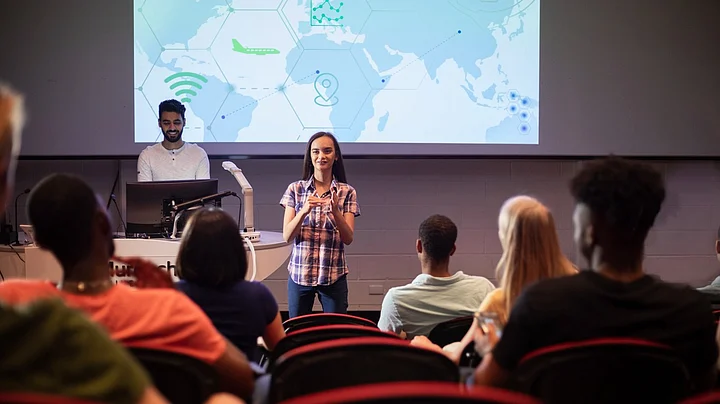[This story has been produced as part of our campaign, #DisabilityInclusion: A Billion Reasons For Change, ahead of IDPWD 2024. Learn more about Accenture's Disability Inclusion initiative.]
For Zahal Mohamed TP, a Project Control Services Analyst in Accenture, breaking barriers as a hearing impaired professional isn’t just about overcoming personal challenges—it’s about embracing the transformative power of technology. In a recent blog, Zahal shared their inspiring journey, shedding light on how tools like real-time transcription and AI-powered sign language interpretation have empowered them to excel in their career.
“The biggest obstacle wasn’t my disability; it was the lack of awareness about how to accommodate someone like me,” Zahal explains. However, through the support of Accenture’s inclusive policies and the integration of assistive technologies, these barriers began to diminish.
Accenture’s efforts to foster an accessible workplace have been central to Zahal’s success. The company has implemented real-time transcription tools, which allow for live captioning during meetings and presentations. These tools, along with AI-powered sign language interpretation, have made it easier for hearing impaired employees to communicate effectively and participate fully in work-related discussions. Zahal noted, “Technology has given me a voice in meetings and discussions where I’d otherwise be sidelined.”
These tools not only enhance communication but also promote a culture of inclusion and equality within the workplace. By making such technologies available, Accenture ensures that hearing-impaired professionals can work as effectively as their hearing counterparts.
In addition to technological innovations, Zahal highlights the importance of sensitivity training and awareness among colleagues. Simple accommodations, such as encouraging video use during virtual meetings to support lip reading or ensuring that sign language interpreters are available, can make a significant difference. “It’s not just about technology; it’s about understanding and respecting different needs,” Zahal emphasized.
Accenture’s commitment to inclusive practices goes beyond the implementation of tools. The company is dedicated to cultivating an environment where all employees, regardless of their disabilities, can contribute and excel. This approach has made a positive impact not just on Zahal’s career but also on the broader workplace culture, encouraging other hearing impaired professionals to embrace new opportunities.
For more on Zahal Mohamed TP’s journey and the transformative role of technology in supporting hearing impaired professionals, read the full blog here.
